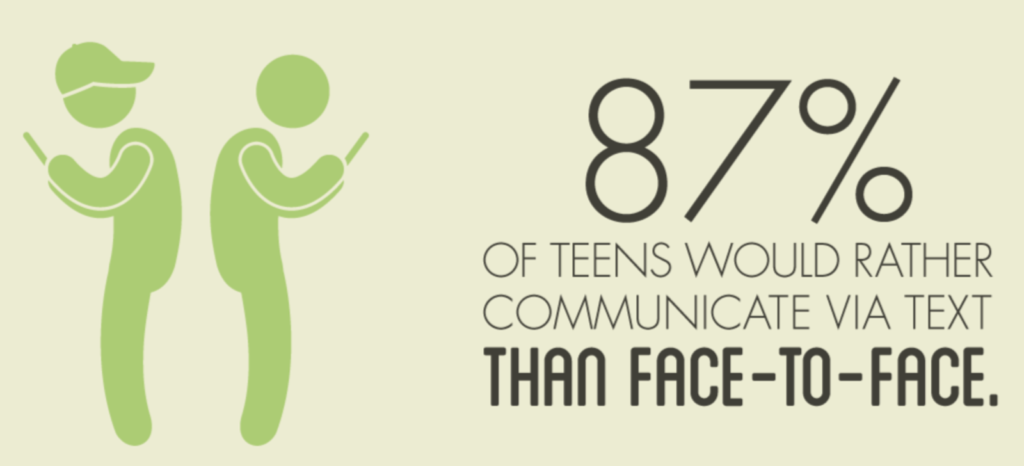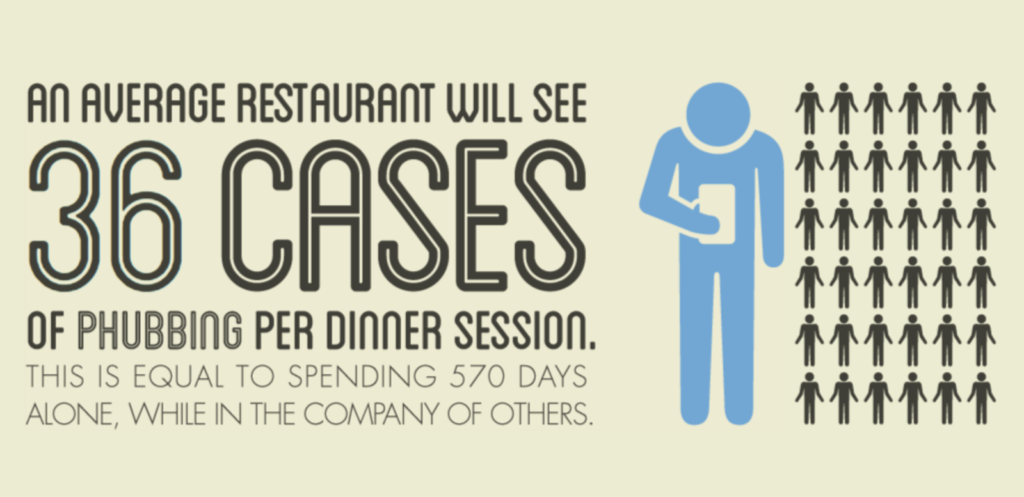20/05/2019
I’m sure the feeling is familiar to you. You are talking to someone and you notice that the person is not listening to you. You find out why with a quick glance: he’s answering a WhatsApp message, or looking at likes on some social network. In short, he is more focused on the phone than on the person in front of him.
And the other way around exactly the same. It is practically impossible that you have never been scolded or called attention to yourself for being more attentive to your smartphone than to the person talking to you.
It happens to all of us and it’s called phubbing, a word that comes from merging phone and snubbing (to ignore). It’s uncomfortable, annoying and irritating but we do it more than we like to admit. According to a study by Pew Research, Spain is the seventh country in the world with the highest smartphone penetration, ahead of other countries such as the United States, France and Germany. Up to 79% of the population uses these devices. And in some cases they also abuse them.
The case is even more worrisome among young people. Up to 87% of teenagers prefer to communicate through the mobile screen rather than face-to-face. And this has consequences. Hiding behind the screen creates a difficulty in coping with emotions, which translates into more and more young people and teenagers choosing to end a relationship over Whatsapp, in the face of their inability to handle the emotions of a breakup.

This, at the same time, leads to the impossibility of dealing with everyday conflicts. Often, adolescent confrontations occur in the digital environment, where they cannot know the impact their words have on others and, therefore, the emotional context of it. This can lead to problems such as cyberbullying, which affects at least 24% of young people.
Behind phubbing we find consequences such as poor school performance, emotional instability, the impossibility of establishing social relationships or the neglect of basic routines such as eating and sleeping.
Because although teenagers are the most affected, adults are by no means unaffected by the damage of phubbing. 62% of Spaniards confess that they manage to isolate themselves and ignore everything around them, even at meetings or parties, when they consult their smartphone.
That is why it is essential that parents learn how to use the cell phone. Although there are several reasons for phubbing (shyness, addiction), the most common is imitation. If parents don’t stop looking at the screen when they are talking to their children, they will do the same with their peers. Repeatedly ignoring other people because they are preoccupied with their cell phones causes others, intentionally or unintentionally, to return this social action.
How to avoid phubbing?
So it is primarily up to adults to set rules and limits on cell phone use to combat phubbing, also translated as ningunfoneo. Setting an example is the best guarantee of success. It is impossible to prohibit a thing when it is among the parents’ routines.
Beyond that, rules like these can reduce message abuse to the detriment of interpersonal relationships .
Do not use the cell phone during meals. It has been proven that the visible presence of a smartphone on the table or anywhere else nearby considerably reduces the perception of trust and the quality of the conversation we have.
This also applies to meals between adults. A restaurant attends approximately 36 cases of ningunfoneo per meal, according to Stop Phubbing data.

- Disable mobile notifications. Or directly the data while doing certain activities such as homework or a family activity.
- Set time slots for cell phone use. Particularly harmful for everyone is using the cell phone before going to sleep, something known as vamping, which affects the quality of sleep and can lead to insomnia.
- Create a mobile parking lot. A creative solution that can help with all the situations described above. A place to leave all the family’s cell phones during sleeping hours, meals or group activities.
- Resolving conflicts face to face. And last but not least: we must get our children used to talking about their emotions so that they see that, at least in the family, other forms of communication are more effective.
There are therefore many ways to fight against an increasingly widespread practice that harms both young people and adults, and which is very difficult for us to control. Through the campaign Por un uso love de la tecnología, Orange has launched a portal on the dangers of technology with the intention of informing about different ways to enjoy connectivity without dangers or addictions.










